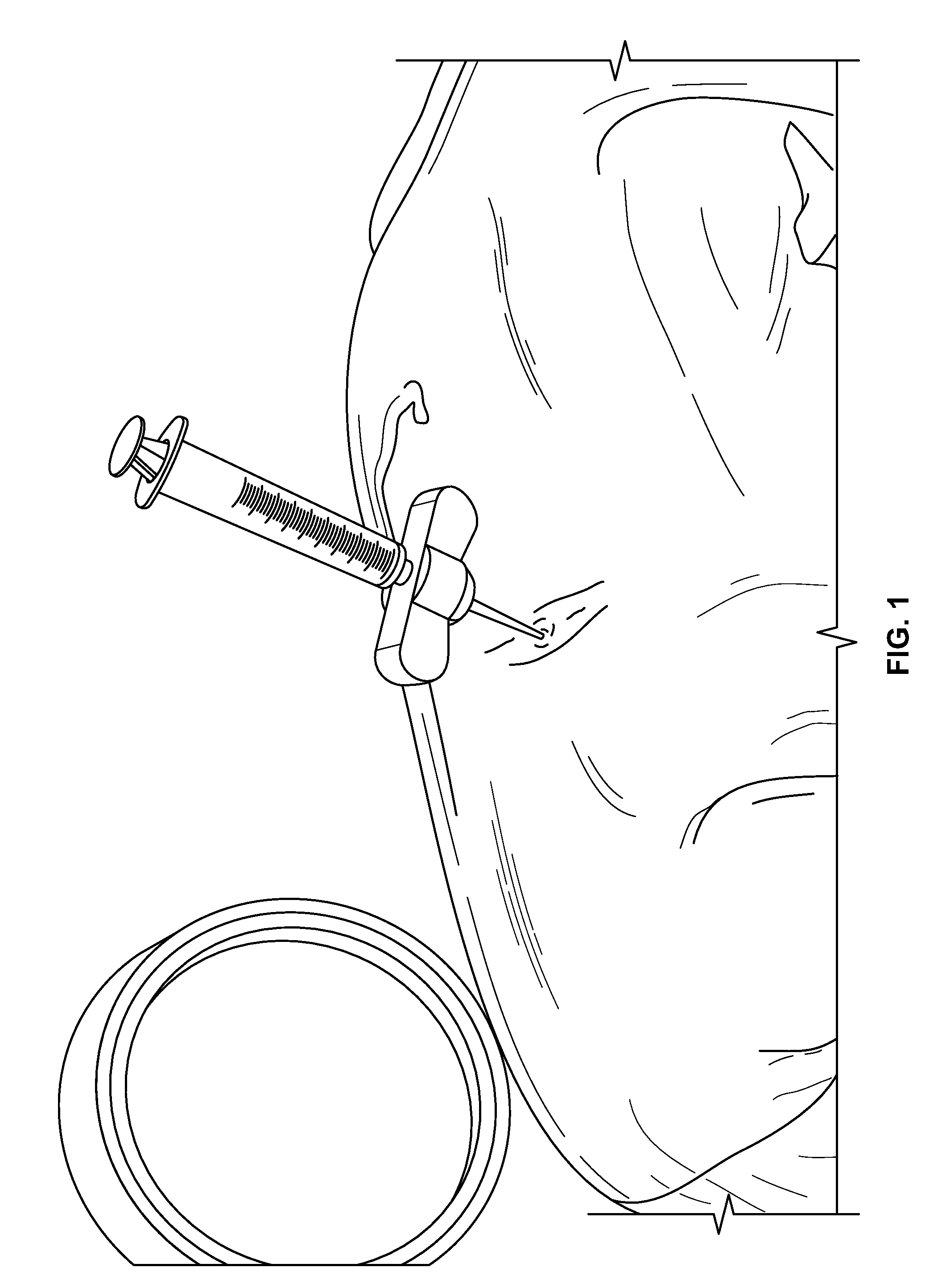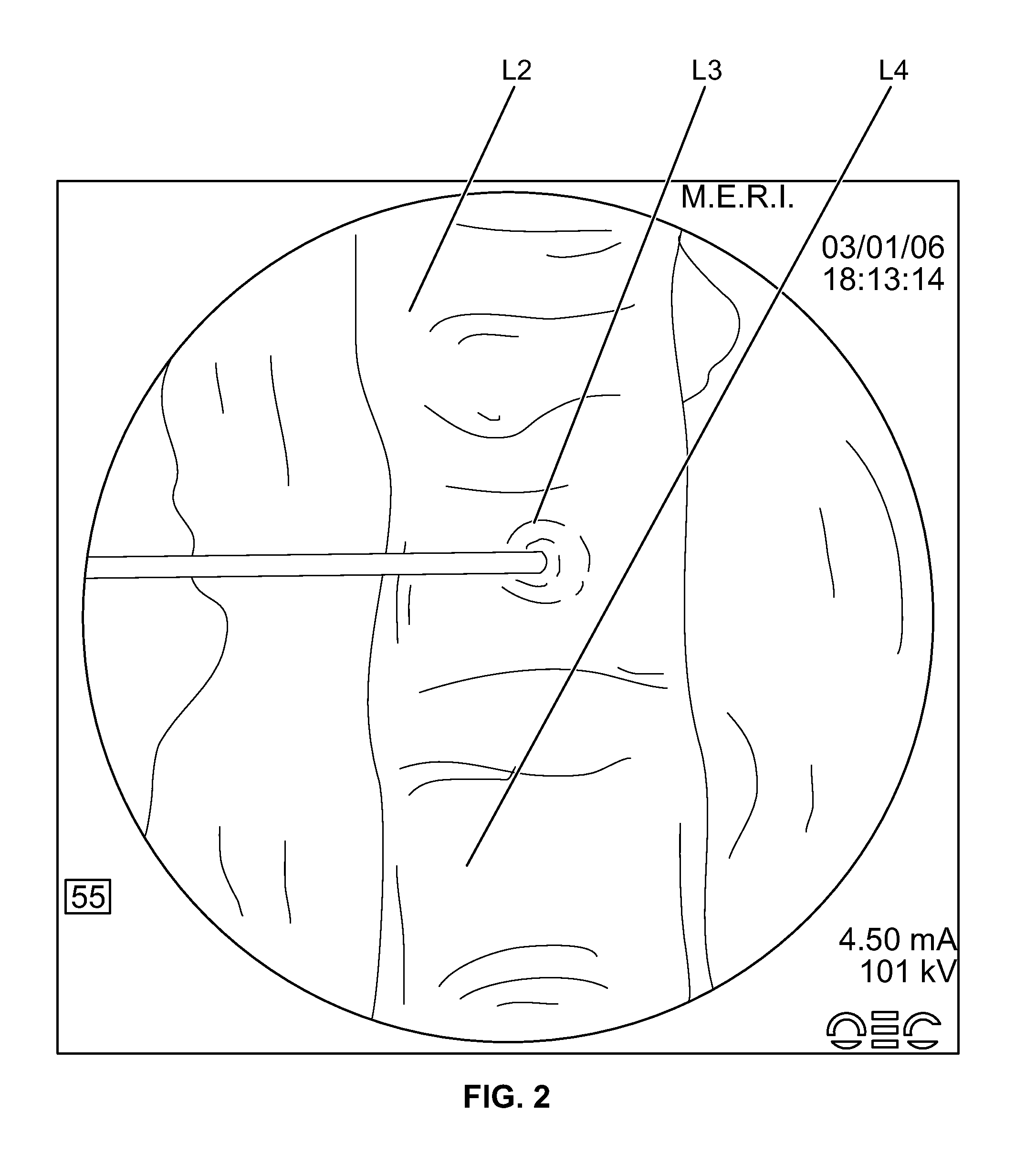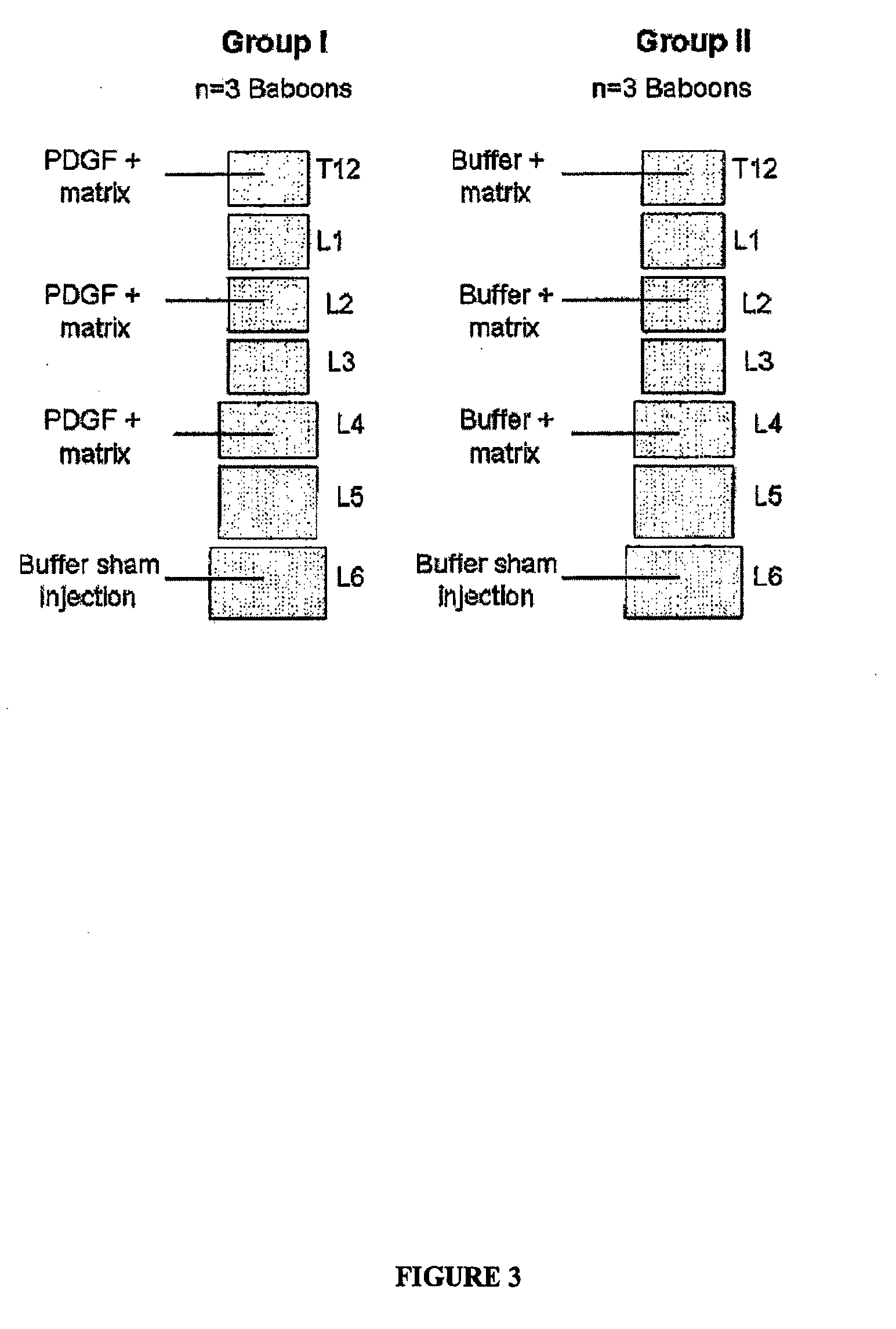Compositions and methods for treating the vertebral column
a technology of vertebral column and composition, applied in the field of composition and methods useful for treating the structure of the vertebral column, can solve the problems of inability to treat the anterior column, inability to repair the anterior column, and inability to maintain the anterior column, so as to improve the bone mineral density, and reduce the risk of fracture
- Summary
- Abstract
- Description
- Claims
- Application Information
AI Technical Summary
Benefits of technology
Problems solved by technology
Method used
Image
Examples
example 1
Preparation of a Composition Comprising a Solution of PDGF and a Biocompatible Matrix
[0116]A composition comprising a solution of PDGF and a biocompatible matrix was prepared according to the following procedure.
[0117]A pre-weighed block of biocompatible matrix comprising β-TCP and collagen was obtained. The β-TCP comprised β-TCP particles having an average diameter ranging from about 100 μm to about 300 μm. The β-TCP particles were formulated with about 20% weight percent soluble bovine type I collagen binder. Such a β-TCP / collagen biocompatible matrix can be commercially obtained from Kensey Nash (Exton, Pa.).
[0118]A solution comprising rhPDGF-BB was obtained. rhPDGF-BB is commercially available from Novartis Corporation at a stock concentration of 10 mg / ml (i.e., Lot # QA2217) in a sodium acetate buffer. The rhPDGF-BB is produced in a yeast expression system by Chiron Corporation and is derived from the same production facility as the rhPDGF-BB that is utilized in the products RE...
example 2
[0120]Method of Inhibiting Secondary Vertebral Compression Fractures
Experimental Design and Overview
[0121]This prospective, randomized, controlled, single-center clinical trial is to evaluate the efficacy of compositions comprising a PDGF solution disposed in a tricalcium phosphate matrix for inhibiting secondary compression fractures in high risk vertebral bodies (HVBs) at the time of kyphoplasty of vertebral compression fractures. Comparisons are made between vertebral bodies treated with a β-tricalcium phosphate+rhPDGF-BB composition and untreated vertebral bodies. The present study is a pilot, clinical trial to support the proof-or-principle of β-TCP+rh-PDGF-BB to prevent or decrease the likelihood of secondary vertebral compression fractures by increased bone formation in HVBs.
[0122]The study is performed on up to a total of 10 patients requiring prophylactic treatment of HVBs at the time of kyphoplasty. Potential patients are screened to determine if they meet the inclusion an...
example 3
Method of Inhibiting Vertebral Compression Fractures in Osteoporotic Individuals
[0139]A method of inhibiting vertebral compression fractures in osteoporotic individuals comprises promoting bone formation in vertebral bodies through treatment with compositions comprising a PDGF solution disposed in a biocompatible matrix such as β-tricalcium phosphate.
[0140]Compositions of the present invention are mixed in accordance with that provided in Example 1. The concentration of PDGF in the PDGF solutions ranges from 0.3 mg / ml to 1.0 mg / ml. Once mixed, the composition is loaded into a syringe for injection using aseptic technique. The surgeon waits about 10 minutes prior to implantation. A new sterile mixing device (spatula) is used for each mix.
[0141]The JAMSHIDI® needle is inserted through an extrapedicular approach into the vertebral bodies requiring prophylactic treatment. Vertebral bodies requiring prophylactic treatment, in some embodiments, comprise high risk vertebral bodies includin...
PUM
| Property | Measurement | Unit |
|---|---|---|
| concentration | aaaaa | aaaaa |
| concentration | aaaaa | aaaaa |
| concentration | aaaaa | aaaaa |
Abstract
Description
Claims
Application Information
 Login to View More
Login to View More - R&D
- Intellectual Property
- Life Sciences
- Materials
- Tech Scout
- Unparalleled Data Quality
- Higher Quality Content
- 60% Fewer Hallucinations
Browse by: Latest US Patents, China's latest patents, Technical Efficacy Thesaurus, Application Domain, Technology Topic, Popular Technical Reports.
© 2025 PatSnap. All rights reserved.Legal|Privacy policy|Modern Slavery Act Transparency Statement|Sitemap|About US| Contact US: help@patsnap.com



